Rachel Cusk Quotes & Sayings (Page 3)
Rachel Cusk quotes and sayings page 3 (novelist). Here's quote # 21 through 30 out of the 78 we have.

“To become a mother is to learn a whole language - to relearn it, perhaps, as it was the tongue to which we were born - and hence gain entrance to a forgotten world of comprehension.”
“I don't go to church any more, but I think that Catholicism is rather like the brand they use on cattle: I feel so formed in that Catholic mould that I don't think I could adopt any other form of spirituality. I still get feelings of consolation about churches.”
“I think men and women are the same. Even as parents, I think we're the same. We're just conditioned to think that we're different. Having said that, it's true that motherhood is a particularly vulnerable area. It's an open wound, really. A woman is exposed to being turned into a different kind of person by the experience of motherhood.”
“I was born abroad, but my parents were both English. Still, those few years of separation, and then coming back to England as an outsider, did give me an ability to see the country in a slightly detached way. I suppose I was made aware of what Englishness actually is because I only became immersed in it later in life.”
“I sometimes feel that the world is a very uncivilised place where it is meant to be at its most civilised. Where it's meant to be intellectual or artistic or compassionate, it isn't, and that makes me very angry.”
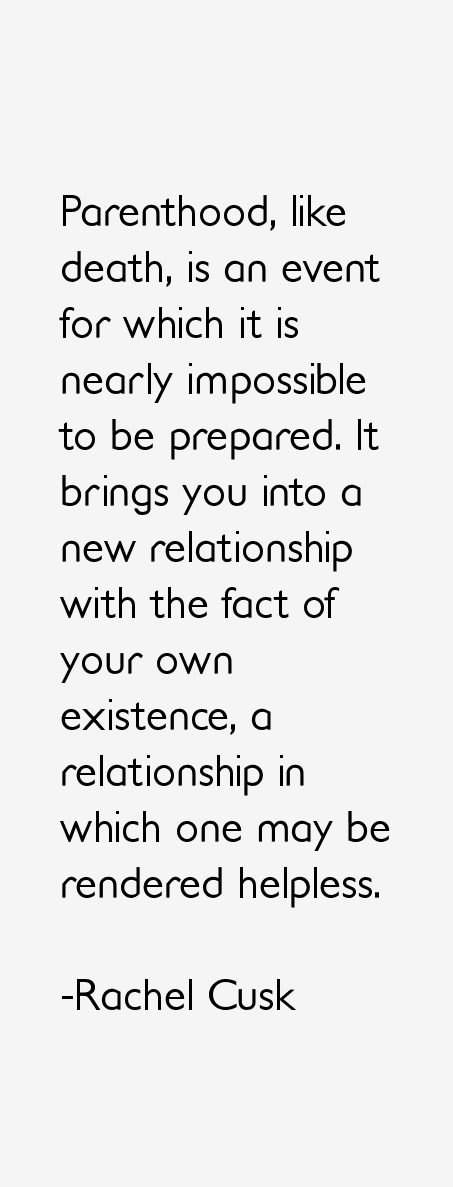
“Parenthood, like death, is an event for which it is nearly impossible to be prepared. It brings you into a new relationship with the fact of your own existence, a relationship in which one may be rendered helpless.”
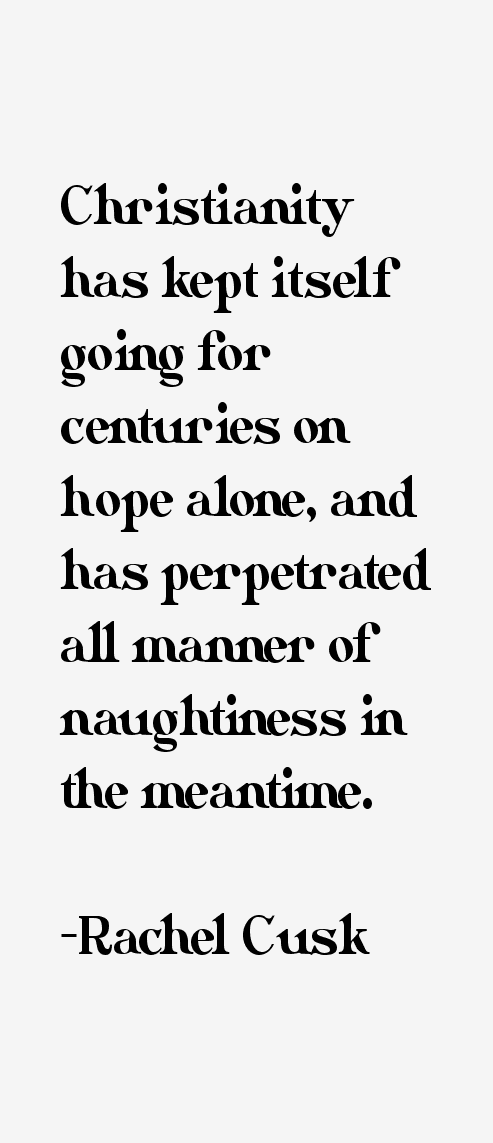
“Christianity has kept itself going for centuries on hope alone, and has perpetrated all manner of naughtiness in the meantime.”
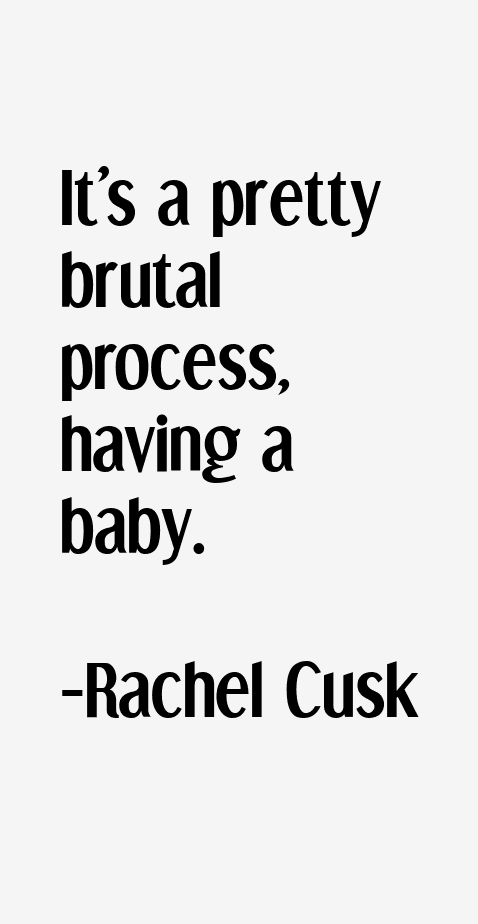
“It's a pretty brutal process, having a baby.”
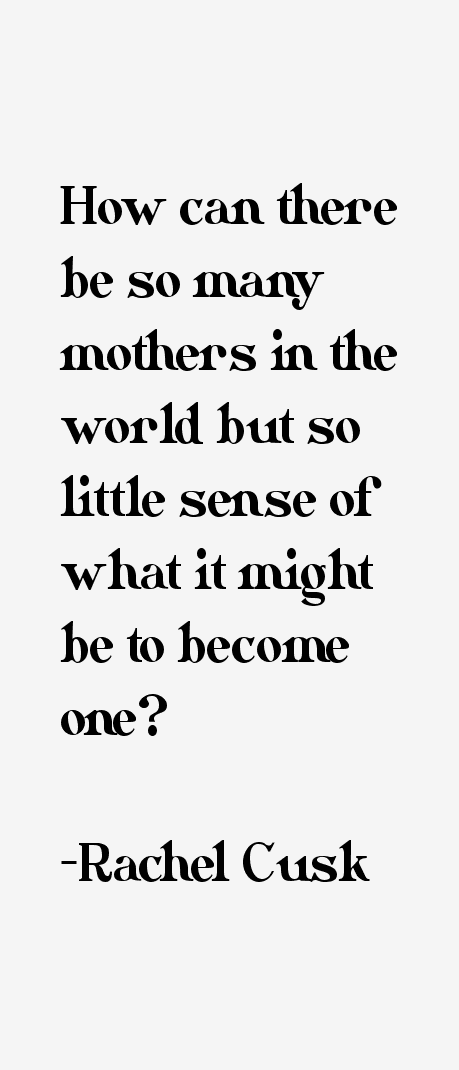
“How can there be so many mothers in the world but so little sense of what it might be to become one?”
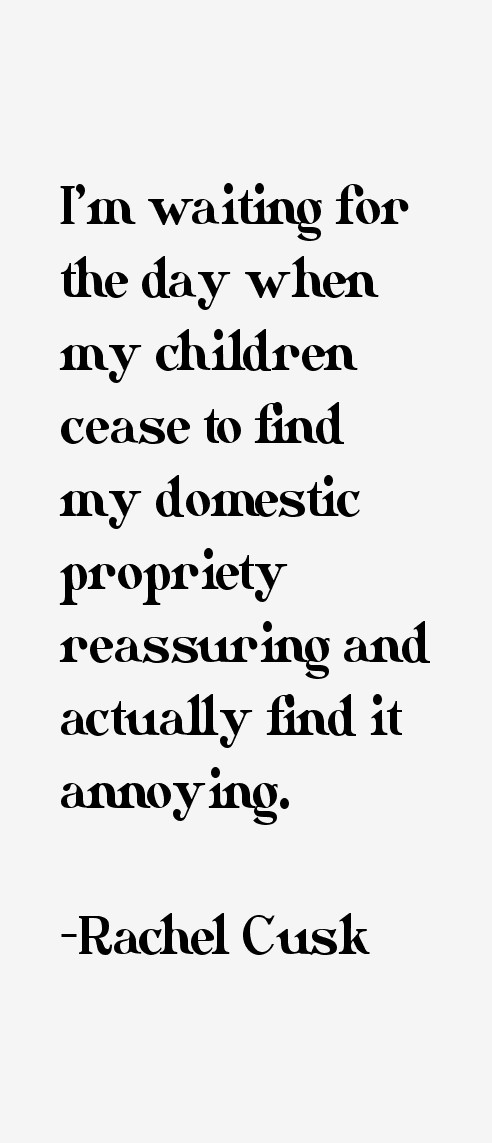
“I'm waiting for the day when my children cease to find my domestic propriety reassuring and actually find it annoying.”
Rachel Cusk Quotes Rating
No Ratings Yet
Leave A Comment
























